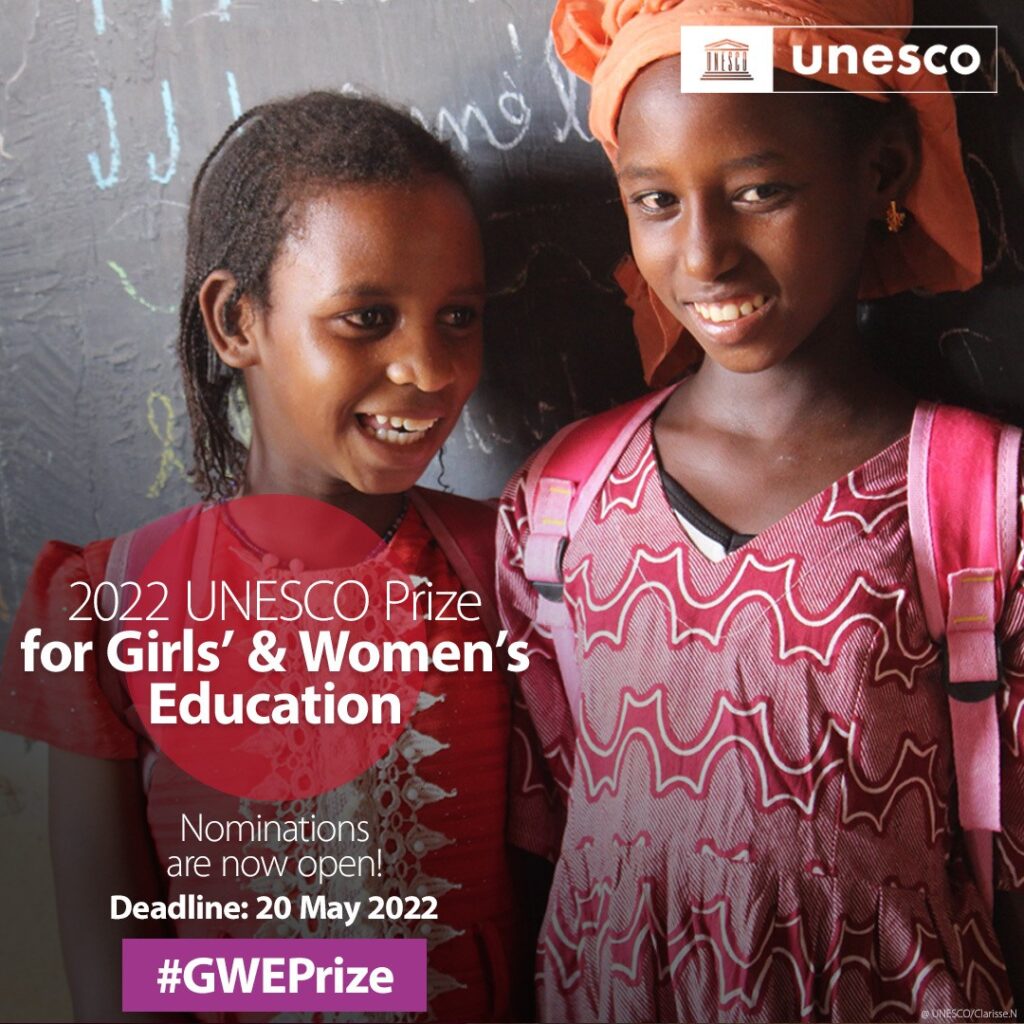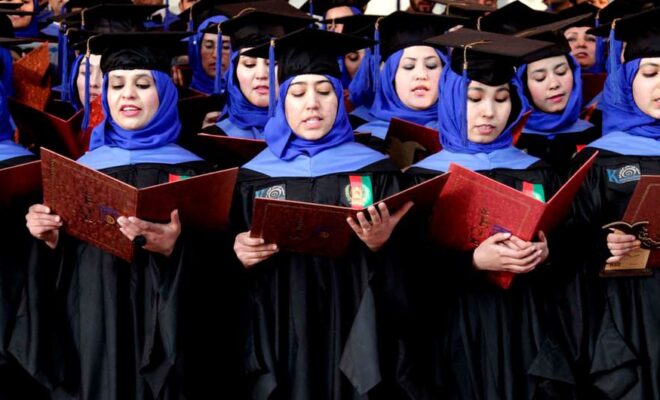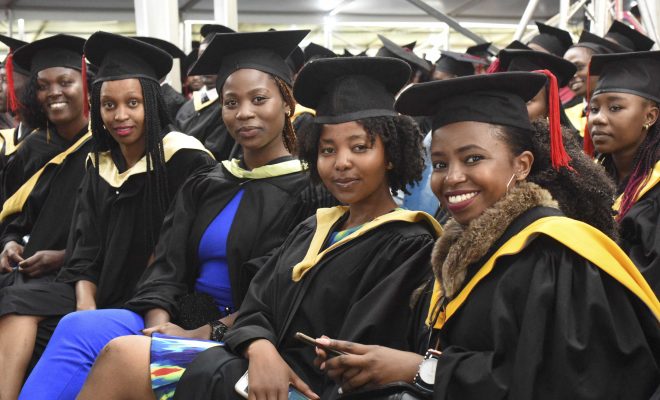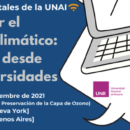UNESCO Prize for Girls’ and Women’s Education now open for nominations

Since 2000, there has been real progress made in advancing girls’ and women’s access to education at all levels. But far too many girls face persistent barriers to their education, particularly those in emergencies and in conflict-affected and fragile states. Girls face particular challenges that prevent them from reaching their full potential, even when they have access to education. These include inadequate sanitation facilities, gender-based violence in and around school, child marriage, and gender norms and discrimination inside and outside of the classroom.
Women make up two-thirds of the 750 million illiterate adults. Educating a girl is one of the best investments her family, community, and country can make. Educated girls are more likely to be healthier, better paid in the workplace, and more empowered to participate in social, economic, civic and political affairs. This transformative effect contributes to a better world for us all.
The UNESCO Prize for Girls’ and Women’s Education honours outstanding and innovative contributions made by individuals, institutions, and organizations to advance girls’ and women’s education. It is the first UNESCO Prize of this nature and is unique in showcasing successful projects that improve and promote the educational prospects of girls and women and in turn, the quality of their lives.
The Prize contributes to two Sustainable Development Goals: “Ensure inclusive and equitable quality education and promote lifelong learning opportunities for all” (Goal 4) and “Achieve gender equality and empower all women and girls” (Goal 5).
Nominations can be made by Governments of UNESCO Member States via their Permanent Delegations to UNESCO, and Non-Governmental Organizations (NGOs) in official partnership with UNESCO. Nominations must focus on an established project or programme designed to advance girls’ and women’s education. Each Permanent Delegation or NGO can make up to three nominations for any edition of the Prize. Self-nominations are not accepted
The two Prize laureates will be selected by UNESCO’s Director-General on the basis of recommendations made by the Prize’s independent International Jury which is made up of five experts in the field of girls’ and women’s education, representing all geographical regions.
RELATED ITEMS








